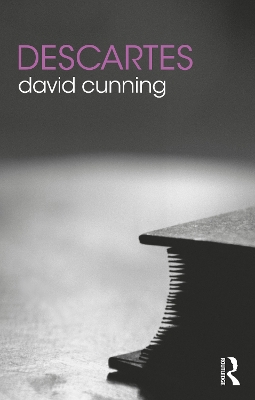The Routledge Philosophers
1 total work
Rene Descartes (1596-1650 ) is widely regarded as the father of modern philosophy. Breaking with the Aristotelian traditions of his day he attempted to rebuild philosophy on the foundations of reason and certainty. His Meditations on First Philosophy is amongst the most influential, controversial and widely studied texts in the history of philosophy and his arguments concerning the relationship between mind and body, knowledge and the existence of God remain widely studied and debated.
In this clear and engaging book David Cunning introduces and examines the full range of Descartes' philosophy, placing Descartes' concerns with our nature as embodied beings at the heart of the book. After a helpful overview of his life and work chapters are devoted to the following topics:
- Descartes' views concerning the mind and embodiment
- philosophical method and the First Meditation
- clear and distinct perception and the Second Meditation
- the existence of God
- Descartes' arguments on the will and human freedom and his view concerning the optimal life for human beings
- the mind-body problem
- ethics and the good life
- medicine and mechanics.
Concluding with a chapter on the legacy and influence of his work, particularly in relation to Spinoza, Descartes is an outstanding introduction to one of the greatest Western philosophers. Including chapter summaries and annotated further reading as well as a glossary it is essential reading for those studying Descartes, the history of modern philosophy and the rationalists. It will also be valuable reading for anyone concerned with the questions bequeathed by Descartes, especially the mind-body problem, philosophical method and the existence of God.
